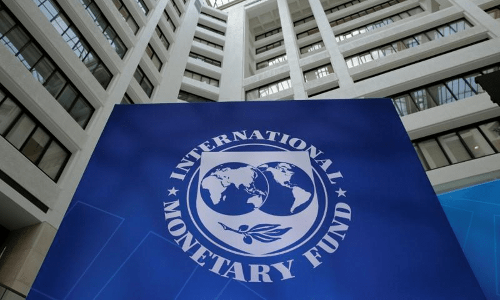The International Monetary Fund (IMF) has commended Nigeria for making notable progress in revenue collection and for improving transparency in its foreign exchange and reserve management.
The Fund made these remarks during a press briefing on the Global Financial Stability Report, held as part of the ongoing World Bank/IMF Annual Meetings in Washington, D.C.
Those who addressed journalists at the session included Tobias Adrian, Financial Counsellor and Director of the IMF’s Monetary and Capital Markets Department (MCM); Vamvakidis Athanasios, Deputy Director of the department; and Jason Wu, Assistant Director. The briefing was moderated by Meera Louis, Communications Officer at the IMF.
During the discussion, the IMF officials highlighted that movements in exchange rates play a critical role as a natural buffer that helps economies adjust to external shocks. They explained that a depreciating exchange rate is not inherently negative and can, in fact, be beneficial when it helps restore balance and competitiveness within the domestic economy.
The Fund observed that Nigeria has implemented important policy steps aimed at strengthening its macroeconomic framework, particularly in the area of monetary policy. It reiterated its support for Nigeria’s transition toward a more flexible exchange rate regime, describing it as a vital reform that aligns with the broader goal of enhancing the country’s economic resilience.
According to the IMF officials, Nigeria has not only improved its capacity for revenue collection but has also made significant progress in increasing transparency around its foreign exchange operations and reserve positions. These actions, combined with tighter monetary policy measures by the Central Bank of Nigeria, have helped reduce inflation from above 30 percent last year to around 23 percent this year while also bolstering the nation’s external reserves. “The direction of travel appears to be positive,” one IMF official noted, expressing cautious optimism about Nigeria’s economic trajectory.
Despite the progress recorded, the IMF warned that Sub-Saharan Africa as a region continues to face notable headwinds. It pointed out that although growth across the region has remained relatively robust amid easing global financial conditions and the resumption of capital inflows, the cycle of heavy inflows followed by abrupt withdrawals remains a risk. A sudden reversal, the Fund cautioned, could expose underlying vulnerabilities, particularly in economies that are heavily dependent on foreign investments.
The IMF therefore emphasised the need for countries across the region, including Nigeria, to continue consolidating recent gains by maintaining sound fiscal and monetary policies, improving debt management, and accelerating structural reforms, especially those that boost domestic revenue mobilization. The officials also called for sustained international support to help African economies navigate emerging risks and maintain their momentum toward stronger, more stable, and inclusive growth.

